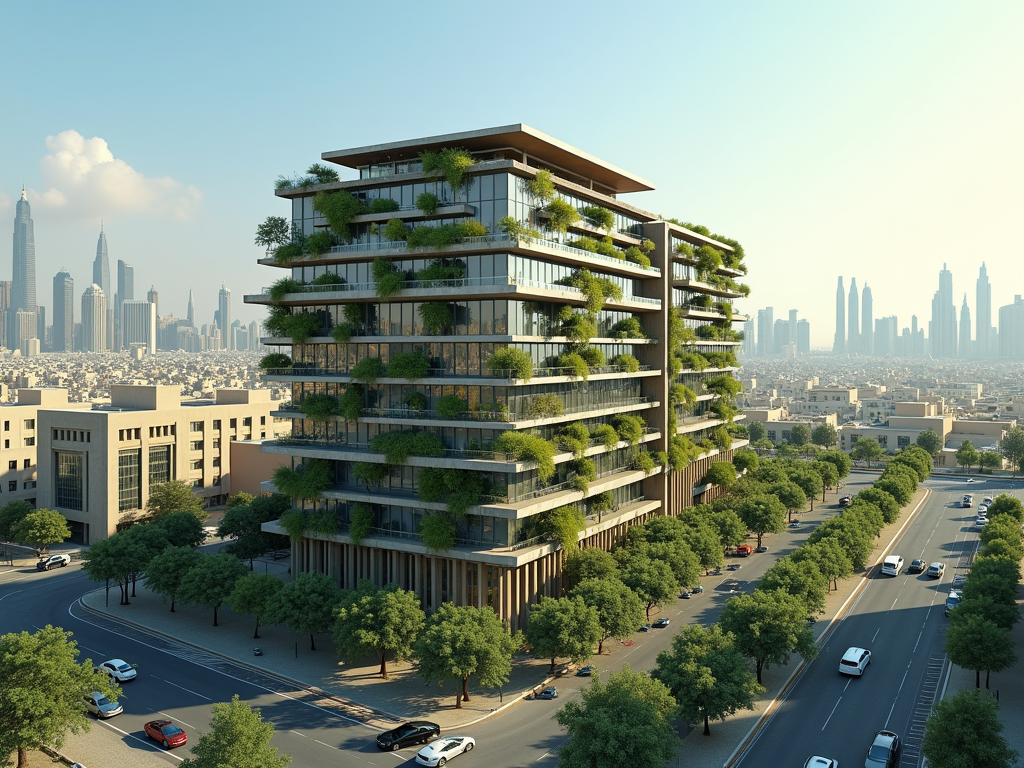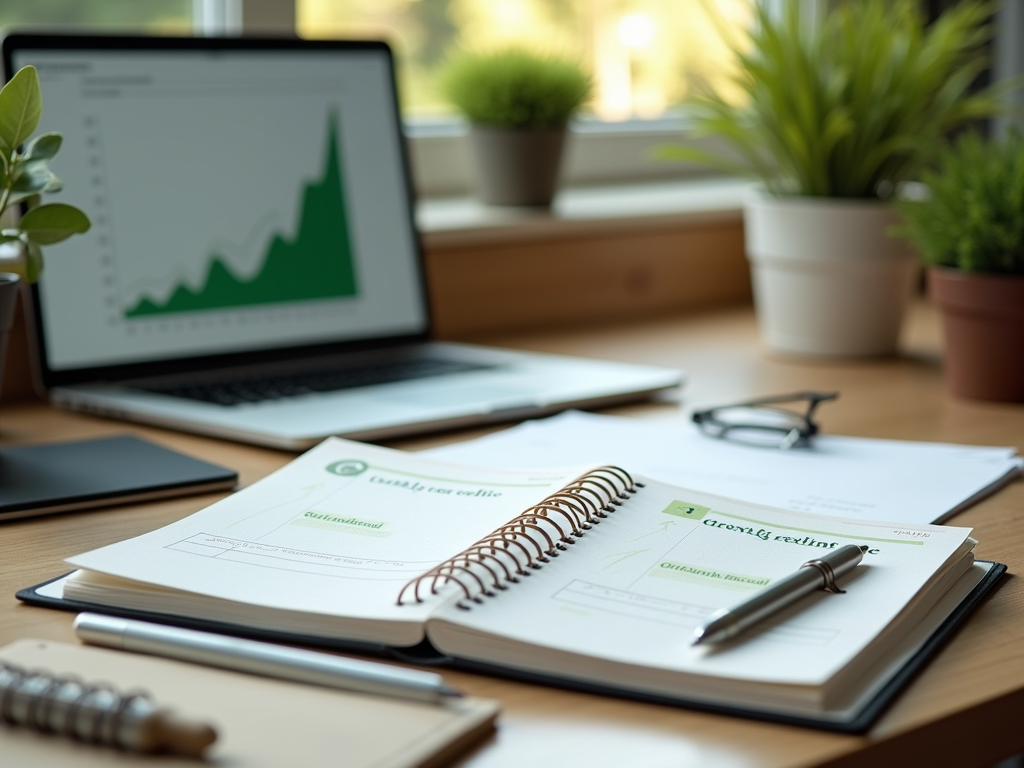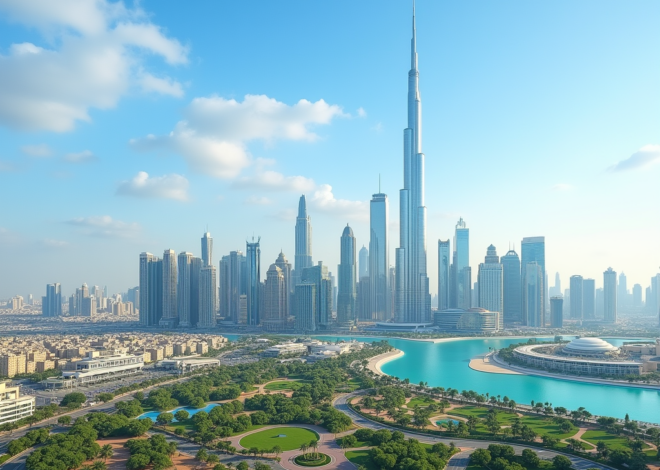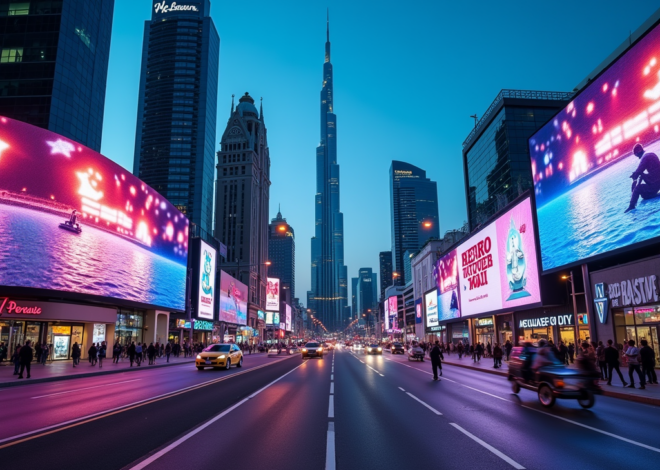
The Rise of Sustainable Business Practices in Dubai
The landscape of business in Dubai is undergoing a significant transformation, with sustainable business practices emerging as a central theme. This shift is a reflection of global trends, increasing environmental awareness, and government initiatives aimed at fostering an eco-friendly economy. As businesses adopt sustainable practices, they not only enhance their reputations but also contribute positively to the environment. This article will delve into the key aspects of this trend, its impact on the economy, and how companies in Dubai are integrating sustainability into their operations.
The Importance of Sustainability in Business

Sustainable business practices are essential for several reasons. First and foremost, they contribute to environmental conservation, significantly reducing the carbon footprint of organizations. In an area such as Dubai, which is characterized by its rapid urbanization and population growth, the integration of sustainability can address issues like resource depletion and waste management. Additionally, sustainable practices often lead to cost savings in the long run through more efficient resource utilization and waste reduction. Businesses that adopt these practices can also enhance their brand image and attract environmentally-conscious consumers, thus opening new market opportunities. Finally, stakeholders, including investors and customers, are increasingly demanding transparency and sustainability in operations, making it crucial for businesses to adapt.
Government Initiatives Promoting Sustainability

The Dubai government has played a pivotal role in the rise of sustainable business practices through various initiatives and regulations. The Dubai Clean Energy Strategy 2050 aims to make the emirate a global center for clean energy and green economy. This strategy includes various key components:
- Increasing Clean Energy Contributions: The plan aims to reach 75% of Dubai’s total power output from clean energy sources by 2050.
- Sustainable Buildings: Regulations have been put in place to ensure all new buildings adhere to strict sustainability guidelines, promoting energy efficiency.
- Green Mobility: The government has invested in infrastructure for electric and hybrid vehicles, encouraging eco-friendly transportation options.
- Waste Management: Initiatives are in place to develop recycling programs and reduce waste to landfill.
- Green Economy Partnerships: The government encourages businesses to collaborate on sustainability-focused projects through partnerships and incentives.
These initiatives not only provide a framework for businesses to follow but also allocate significant funds and resources to support sustainable practices.
Corporate Responsibility and Sustainability in Dubai
Numerous businesses in Dubai have recognized the importance of corporate social responsibility (CSR) as a means to reach sustainability goals. Many local firms are incorporating sustainable practices into their core strategies, transforming their operations to reflect eco-friendliness. Companies like Emirates Airlines and Emaar Properties are leading the charge with ambitious sustainability programs. Some key elements of these corporate strategies include:
- Implementing renewable energy sources across operations.
- Reducing water usage and improving efficiency in production.
- Engaging in community outreach programs focused on environmental education.
- Adopting sustainable supply chain practices that favor eco-friendly material sourcing.
- Measuring and reporting on sustainability performance to stakeholders.
The commitment shown by these companies serves as an inspiration for others to follow suit, contributing to a more sustainable business environment in Dubai.
The Role of Innovation in Sustainability
Innovation is essential in the quest for sustainability in Dubai. Businesses increasingly leverage technology to improve efficiency, reduce waste, and enhance their products and services. Emerging technologies, such as the Internet of Things (IoT) and artificial intelligence (AI), are being utilized to optimize operations and track resource consumption more effectively. Startups in the green tech sector are flourishing, focusing on solutions that support sustainable living and environmental conservation. Some examples of innovative sustainable practices include:
- Smart Energy Management Systems: These systems use data analytics to manage energy consumption dynamically.
- Biodegradable Materials: Companies are developing and using materials that break down naturally, reducing plastic waste.
- Water Recycling Technologies: Innovations that allow for the efficient use of water and its reclamation for various uses.
- Renewable Energy Storage Solutions: Technologies that enhance the viability of solar or wind energy by storing excess energy.
These innovations not only enhance business efficiencies but also align with global sustainability goals and expectations, placing Dubai at the forefront of green business initiatives.
Future Prospects for Sustainable Business in Dubai
The future of sustainable business practices in Dubai looks promising as awareness continues to grow among businesses and consumers alike. As environmental challenges become more pronounced globally, companies in Dubai are likely to adopt even more rigorous sustainability measures. This trend may lead to increased regulatory measures or frameworks that further compel businesses to innovate and reduce their carbon footprints. Additionally, investments in green technology will likely soar as both the public and private sectors realize the economic opportunities that come with a sustainable approach. With increasing demand for transparency and accountability, businesses that prioritize sustainability will not only survive but thrive in an evolving marketplace.
Conclusion
The rise of sustainable business practices in Dubai marks a significant shift in how corporations operate and engage with their environment. Driven by government initiatives, corporate responsibility, and innovation, the movement towards sustainability offers numerous benefits, including enhanced brand reputation, reduced costs, and compliance with regulatory frameworks. As companies continue to align their operations with sustainable ideals, they play a vital role in shaping a greener future for Dubai—a future that prioritizes economic growth while respecting the planet’s limits.
Frequently Asked Questions
1. What are sustainable business practices?
Sustainable business practices are strategies that allow companies to operate in a manner that is environmentally friendly, socially responsible, and economically viable. These practices often focus on reducing waste, conserving resources, and promoting ethical labor practices.
2. How is the Dubai government supporting sustainability?
The Dubai government supports sustainability through initiatives like the Dubai Clean Energy Strategy 2050, which sets ambitious goals for clean energy sources, waste management, and sustainable urban planning.
3. Why is sustainability important for businesses in Dubai?
Sustainability is important for businesses in Dubai as it can lead to cost savings, improved brand reputation, regulatory compliance, and access to eco-conscious consumers and investors.
4. How can businesses in Dubai implement sustainable practices?
Businesses can implement sustainable practices by adopting renewable energy, reducing resource consumption, improving supply chain sustainability, and measuring their environmental performance regularly.
5. What role does innovation play in sustainability in Dubai?
Innovation plays a crucial role by providing new technologies and solutions that enhance sustainability efforts, improve efficiency, and offer alternatives to traditional business practices, thereby addressing environmental challenges effectively.


